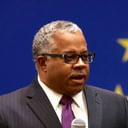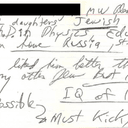
The process of death qualification, which excludes people who oppose the death penalty from serving on capital juries, is racially discriminatory, civil rights advocate Reverend Dr. William J. Barber II wrote in an October 10, 2022 op-ed.
Rev. Barber and his co-authors, pastor Dumas Harshaw Jr. and preacher Jonathan Wilson-Hartgrove, introduce their article with a recognition of J.W. Hood, a Black man and AME Zion pastor, who fought to abolish slavery and co-authored North Carolina’s modern constitution. “Today, he’s exactly the kind of person who’s most likely to be denied the right to serve on a jury,” they write. “A century and a half after Hood spoke of the importance of jury service, a Wake County death penalty case is exposing the reality that Black people’s right to be represented in the jury box is still under threat in North Carolina.”
They explain that “studies show that Black people are more likely to oppose the death penalty and question evidence presented by law enforcement,” and are therefore more likely to be excluded from capital juries during the death qualification process. This ignores the fact that the views of Black jurors are shaped by racial discrimination in the legal system. The authors write, “this perspective is the result of the African-American experience in the United States, which is shaped by the racist history of policing and the death penalty. Rules that do not recognize this fact make it impossible for us to work together toward a multiracial democracy.”
The op-ed was written in support of a lawsuit filed by the ACLU on August 16, 2022 on behalf of Brandon Xavier Hill to challenge death qualification in his case. Serving as evidence for the motion, a Michigan State University study of jury selection in eleven Wake County, North Carolina capital trials between 2008 and 2019, conducted by law professors Catherine M. Grosso and Barbara O’Brien, found statistically significant evidence of racial and gender disparities in death qualification. The researchers found that death qualification removed Black potential jurors “at 2.16 times the rate of their white counterparts.”
Rev. Dr. Barber connects the exclusion of Black jurors from serving in capital cases to the ongoing disenfranchisement of Black voters during elections. He returns to J.W. Hood, citing his belief that “if Black people were to be full citizens of North Carolina, they needed three basic rights: to serve in the jury box, to testify in court, and to vote.” Barber states, “This is not only a violation of the rights of the accused, but also of citizens who understand, as Hood did, that our country cannot be a functioning democracy if we regularly exclude large cohorts of our neighbors from the ballot and jury box.”
Rev. William J. Barber II, Dumas Harshaw Jr., and Jonathan Wilson-Hartgrove, Rev. William Barber: Stop excluding Black people in NC from death penalty juries, The News & Observer, October 10, 2022



